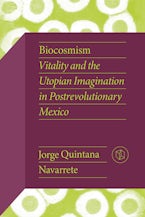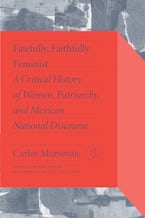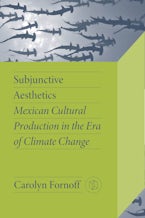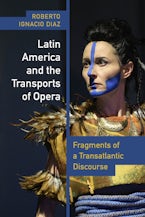- Home
- Jaguars' Tomb
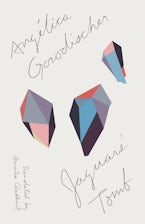
Jaguars' Tomb
Translated by Amalia Gladhart
Winner of the Queen Sofía Spanish Institute Translation Prize, 2022
Jaguars' Tomb is a novel in three parts, written by three interconnected characters. Part one, "Hidden Variables" by María Celina Igarzábal, is narrated by Bruno Seguer. Seguer in turn is the author of the second part, "Recounting from Zero" ("Contar desde zero"), in which Evelynne Harrington, author of the third, is a central character. Harrington, finally, is the author of "Uncertainty" ("La incertidumbre"), whose protagonist is the dying Igarzábal. Each of the three parts revolves around the octagonal room that is alternately the jaguars' tomb, the central space of the torture center, and the heart of an abandoned house that hides an adulterous affair.
The novel, by Argentine author Angélica Gorodischer, is both an intriguing puzzle and a meditation on how to write about, or through, violence, injustice, and loss. Among Gorodischer's many novels, Jaguars' Tomb most directly addresses the abductions and disappearances that occurred under the Argentine military dictatorship of 1976–83. This is the fourth of Gorodischer's books translated into English. The first, Kalpa Imperial—translated by Ursula Le Guin—was selected for the New York Times summer reading list in 2003.
Jaguars' Tomb is a novel in three parts, written by three interconnected characters. Part one, "Hidden Variables" by María Celina Igarzábal, is narrated by Bruno Seguer. Seguer in turn is the author of the second part, "Recounting from Zero" ("Contar desde zero"), in which Evelynne Harrington, author of the third, is a central character. Harrington, finally, is the author of "Uncertainty" ("La incertidumbre"), whose protagonist is the dying Igarzábal. Each of the three parts revolves around the octagonal room that is alternately the jaguars' tomb, the central space of the torture center, and the heart of an abandoned house that hides an adulterous affair.
The novel, by Argentine author Angélica Gorodischer, is both an intriguing puzzle and a meditation on how to write about, or through, violence, injustice, and loss. Among Gorodischer's many novels, Jaguars' Tomb most directly addresses the abductions and disappearances that occurred under the Argentine military dictatorship of 1976–83. This is the fourth of Gorodischer's books translated into English. The first, Kalpa Imperial—translated by Ursula Le Guin—was selected for the New York Times summer reading list in 2003.
Introduction: Octagonal Rooms: Writing, Absence, Translation, Play
Acknowledgments
Jaguars’ Tomb
Hidden Variables (María Celina Igarzábal)
Recounting from Zero (Bruno Seguer)
Uncertainty (Evelynne Harrington)
Acknowledgments
Jaguars’ Tomb
Hidden Variables (María Celina Igarzábal)
Recounting from Zero (Bruno Seguer)
Uncertainty (Evelynne Harrington)
Angélica Gorodischer is the Argentine author of seventeen novels and several story collections. Gorodischer's literary awards include the Gilgamesh Prize; the Platinum Konex; the Dignity Award from the Permanent Assembly for Human Rights; the Silvina Bullrich Award from the Argentina Writers' Society; and the Esteban Echeverría Award from Gente de Letras, Argentina. Her work has previously been translated into English by Ursula K. Le Guin, Sue Burke, and Amalia Gladhart.
Amalia Gladhart is a professor of Spanish at the University of Oregon.
"The whole novel can only be read as a poetic of writing, an institutional attempt to create a new world."
—Adrián Ferrero, National University of La Plata
"One of the highest points of Gorodischer's poetic art."
—Book Radar
I dreamt I was in heaven. Not Heaven, paradise of fortunate souls. In the heavens, that sky blue—what? elytron?—that officially covers all of us, covers religions that promise eternal happiness as much as it does wretched poems, clumsily rhymed. In the heavens, up there above where, a poor imitation, a mirror of our own, there’s another city. Standing on dense clouds, hard as bitumen, compact, immobile as stone angels, clouds sprawled like sacks of corn, I felt no fear that I might fall and fall and smash against the ground. I think it fair to say I felt nothing. Indifference, maybe; or something still more disagreeable, like boredom. Poor heavens, to harbor this ill-humored man, even if it was but to show him the other side of the clouds, just for a moment. So much, so little, so miserly—I thought I should give something in exchange, that I was expected to give something, but what? What more can I give after giving what I gave, what they tore from me? I only know how to write, but words are little if it’s payment—although it could also be a debt—if it’s a matter of payment, of price. Or maybe I could sing, recount in a reverse accounting all the anguish and we’re back to the matter of the words. Poor heavens.
Lying on a high bed of clouds, I looked around and saw the city. Not the city down below, the city in the clouds. It was a city—it could have been any of them, or none, it made no difference; a city, yes, that’s what it was, one of the largest. It was enormous, flooded with skyscrapers as if that were a way to defend it, to make it appear (or even be) invulnerable, and it was. I turned on my side so as to see it better and then I saw it the way it had to be seen: static, deserted, all white, the buildings perforated by tiny windows. I didn’t see gardens, or monuments or balconies or inhabitants or libraries or streets or bars or schools; only the city, the buildings that were the city; and the more I looked, the more solid and unfortunate it seemed. I thought it must be infinite, because one always returns to that which is probably infinite, desolate before the mystery and sheltered by its grandeur. That’s what gave it the contagious air of distress. Or maybe, it occurred to me on waking—because even as I was confirming my uneasiness, I woke up—maybe it had been built by the misfortune of a dying people who, knowing they were dying, left a monument. In the heavens, not in Heaven.
Up there, perhaps, there would be no storms and the sun would always be shining on the high towers, perforated and still.
No storms. Not sandstorms nor rainstorms nor snowstorms; storms like the ones I imagine on the riverbank at La Preciada, beyond the big curve, the whole place exposed to the west winds that carry dust and sand, and little men running to cover the canoes and tie up the animals; storms that form in five minutes and last at most an hour, an hour and a half, unless they let loose in the middle of the night, crossing the darkness to clear up in the morning over sleeplessness and mud.
But that is not—no, no, it isn’t—that is not the best way to start to tell the story, so as to tell, first of all, about what happened or should have happened. The storms at La Preciada are something she encounters; they are not—not yet—part of her own story. It is his story, it has been for years, many years—long enough to feel the weight is growing too heavy for him.
Her story begins much earlier and much further north. Let’s see. A different beginning, different words, what is necessary but not too much; what begins to slip, not shame but maybe—just barely—a lie.
Or if not that, why not begin with the man who, being tired, dreams of a city in the heavens?
No, no, no, it really is not necessary, it is not even desirable, to get into something from over there when it just now happened to me, to this person, this writer: I, me, Bruno Seguer, the author who is not supposed to appear on the same stage as the storms. What happens doesn’t happen to the author, it shouldn’t happen to him; what happens, happens to the people of La Preciada, to the girl from the cold country of fog, to the plainsmen and to the man who longs for a piano.
It is a novel, not a diary or a confession, not an outpouring of sentiment. He doesn’t dream about anything. He is simply tired. He has lived and worked in that house beside that river for years. Perhaps he needs to change. Not to leave, move the business, build another jetty. He has thought, at times—but isn’t it out of place, this making the rounds of his plans?—thought at times about bringing a woman to live with him, but he couldn’t endure a native, and as for white women out there, don’t even mention it. The native women are fine for a few hours or a few days, not to live with. If there were one here in the house day and night, what would she do? What would she do? Embroider? Help Tuca bake the bread? Learn to read? And what would he do, what would he say to her? How could he look at that passive and distant face, maybe with shiny paint on cheeks and forehead, a headband hung with the fangs of brown desert rats if he allowed it? No.
It isn’t that. He doesn’t want women living in the house, nor (probably) does he want to change his life. He asks himself often, he asks himself but he doesn’t know nor does it seem he wants to answer, if what he wants is to go back. But it’s neither one nor the other—nor, he wants to believe, does he wish his life had been different.
And I, in spite of these doubts, faced with him (and without telling him or telling myself), I know exactly what he feels and how he feels it, but the same doesn’t happen with her. It even seems hopeless. I can’t imagine what a woman feels who both hates and desires the man who desires her, or who in any case desires that man who is capable of hatred and who desires a woman, any woman.
Lying on a high bed of clouds, I looked around and saw the city. Not the city down below, the city in the clouds. It was a city—it could have been any of them, or none, it made no difference; a city, yes, that’s what it was, one of the largest. It was enormous, flooded with skyscrapers as if that were a way to defend it, to make it appear (or even be) invulnerable, and it was. I turned on my side so as to see it better and then I saw it the way it had to be seen: static, deserted, all white, the buildings perforated by tiny windows. I didn’t see gardens, or monuments or balconies or inhabitants or libraries or streets or bars or schools; only the city, the buildings that were the city; and the more I looked, the more solid and unfortunate it seemed. I thought it must be infinite, because one always returns to that which is probably infinite, desolate before the mystery and sheltered by its grandeur. That’s what gave it the contagious air of distress. Or maybe, it occurred to me on waking—because even as I was confirming my uneasiness, I woke up—maybe it had been built by the misfortune of a dying people who, knowing they were dying, left a monument. In the heavens, not in Heaven.
Up there, perhaps, there would be no storms and the sun would always be shining on the high towers, perforated and still.
No storms. Not sandstorms nor rainstorms nor snowstorms; storms like the ones I imagine on the riverbank at La Preciada, beyond the big curve, the whole place exposed to the west winds that carry dust and sand, and little men running to cover the canoes and tie up the animals; storms that form in five minutes and last at most an hour, an hour and a half, unless they let loose in the middle of the night, crossing the darkness to clear up in the morning over sleeplessness and mud.
But that is not—no, no, it isn’t—that is not the best way to start to tell the story, so as to tell, first of all, about what happened or should have happened. The storms at La Preciada are something she encounters; they are not—not yet—part of her own story. It is his story, it has been for years, many years—long enough to feel the weight is growing too heavy for him.
Her story begins much earlier and much further north. Let’s see. A different beginning, different words, what is necessary but not too much; what begins to slip, not shame but maybe—just barely—a lie.
Or if not that, why not begin with the man who, being tired, dreams of a city in the heavens?
No, no, no, it really is not necessary, it is not even desirable, to get into something from over there when it just now happened to me, to this person, this writer: I, me, Bruno Seguer, the author who is not supposed to appear on the same stage as the storms. What happens doesn’t happen to the author, it shouldn’t happen to him; what happens, happens to the people of La Preciada, to the girl from the cold country of fog, to the plainsmen and to the man who longs for a piano.
It is a novel, not a diary or a confession, not an outpouring of sentiment. He doesn’t dream about anything. He is simply tired. He has lived and worked in that house beside that river for years. Perhaps he needs to change. Not to leave, move the business, build another jetty. He has thought, at times—but isn’t it out of place, this making the rounds of his plans?—thought at times about bringing a woman to live with him, but he couldn’t endure a native, and as for white women out there, don’t even mention it. The native women are fine for a few hours or a few days, not to live with. If there were one here in the house day and night, what would she do? What would she do? Embroider? Help Tuca bake the bread? Learn to read? And what would he do, what would he say to her? How could he look at that passive and distant face, maybe with shiny paint on cheeks and forehead, a headband hung with the fangs of brown desert rats if he allowed it? No.
It isn’t that. He doesn’t want women living in the house, nor (probably) does he want to change his life. He asks himself often, he asks himself but he doesn’t know nor does it seem he wants to answer, if what he wants is to go back. But it’s neither one nor the other—nor, he wants to believe, does he wish his life had been different.
And I, in spite of these doubts, faced with him (and without telling him or telling myself), I know exactly what he feels and how he feels it, but the same doesn’t happen with her. It even seems hopeless. I can’t imagine what a woman feels who both hates and desires the man who desires her, or who in any case desires that man who is capable of hatred and who desires a woman, any woman.





